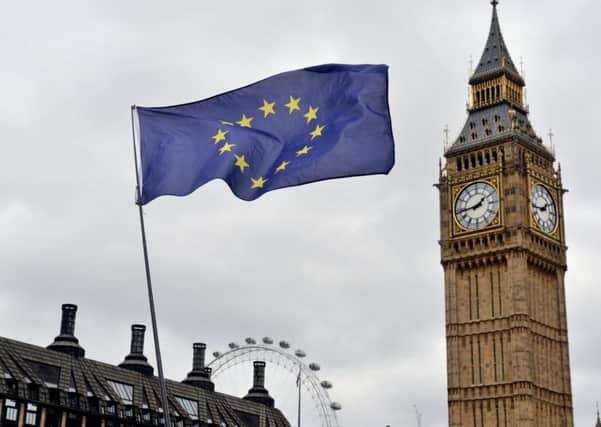YP Letters: Five questions every election candidate should answer over Brexit


IN July, we start the negotiation to exit the EU. They will dominate politics for the next two years and they will be tough. There is one key question on June 8 – which candidate will most support our Government in negotiations with the EU for a successful Brexit? Here are five questions to ask all candidates standing in the election:
1. Whether you campaigned to leave or remain in the EU, do you accept that Brexit must be implemented and we leave all EU bodies which take power away from UK decision making?
Advertisement
Hide AdAdvertisement
Hide Ad2. Our negotiations with the EU start in July, they will be tough, Will you be supporting the UK negotiating team when there are conflicts with the EU?
3. Do you accept that in any negotiation, you only have a strong hand if you are prepared to walk away and have the confidence to do so? Will you support the UK government in this approach?
4. If the EU continues to demand a massive ‘exit bill’ payment in exchange for a free trade deal, will you reject the EU’s demands and support the UK government negotiating team?
5. Will you work with people in your constituency to find and seize opportunities presented by Brexit? Will you work to make it a success for your constituents?
From: Jim Pike, Leeds.
Advertisement
Hide AdAdvertisement
Hide AdNOW that “Brexit” is the official policy of all parties likely to win the election, I am reminded of an episode from my civil service career back in 1973.
We were “renegotiating” our entry into the European Economic Community, and I was in the Department of Trade and Industry. Our Assistant Secretary, a lady I’ll call Miss Smith (not her real name), went to Brussels to negotiate with her opposite numbers.
The French and German teams knew that Miss Smith wanted to catch a late afternoon plane back to London, so they deliberately refused to compromise. So Miss Smith deliberately let the plane go. She continued to negotiate. Time passed, and the Europeans began to look worried. She continued into the evening. They suggested an adjournment, but she refused and continued to hold them in talks. They finally capitulated to the British position – at 3.15am the following morning!
I can see Miss Smith, now, cheerfully sitting on a desk and telling us the tale, before going home for some well-earned sleep. No wonder that her staff adored her. In the months that lie ahead, I think that Mrs May is going to need quite a few Miss Smiths.